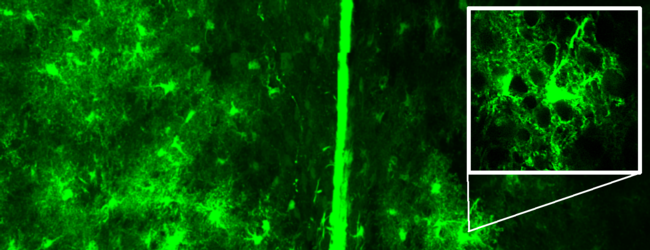New Role for the Brain’s Support Cells in Controlling Circadian Rhythms

Astrocytes, ‘caretaker’ cells that surround and support neurons in the brain, play a much more important role in circadian rhythms, the body’s 24-hour internal clock, than previously understood.
The Medical Research Council funded study found that these star-shaped cells, previously thought of as just supporting neurons in regulating circadian rhythms, can actually lead the tempo of the body’s internal clock and have been shown for the first time to be able to control patterns of daily behaviour in mammals.
The findings of the new study could pave the way for new treatments to be exploited when circadian rhythms are disrupted, which can cause jet lag and sleep disorders, as well as contribute to a range of health conditions, from psychiatric disorders to dementia, diabetes and cancer.
See the details of the study at the MRC site here
